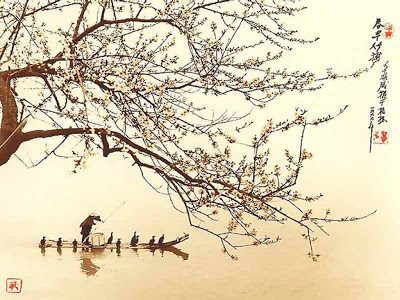Japan needs to Re-Align with China: Legacy of Buddhism, Confucianism, History, and Taoism
Sawako Uchida and Lee Jay Walker
Modern Tokyo Times
The ancient Middle Kingdom of China impacted greatly on the culture of Japan and this notably applies to the legacy of Buddhism, Confucianism, and Taoism, that all altered the landscape of Japan forever. Of course, Buddhism also entered Japan through Korea but the greater impact was the Middle Kingdom. However, the encroachment of Western colonialism and rapid changes during the Meiji Restoration of 1868, meant that Japan turned against a nation that had only enriched the land of the rising sun. Therefore, it is high time for China and Japan to overcome a narrow hostile period of history based on the false actions of Japan – and instead to focus on the thousands of years of cultural exchanges that took place between both societies.
In the realm of modern day geopolitics then the only nation with any degree of influence on the Korean peninsula towards North Korea is China. This reality, given the nuclear angle and political uncertainty in the long run in North Korea, equates to the need to reduce tensions and the possible fallout from any internal clash between South Korea and North Korea. In other words, it is in the national interest of Japan to focus on milder relations between Beijing and Tokyo rather than the hard power of America that threatens to unleash a future brutal war on the Korean peninsula.
Territorial disputes between China and Japan is also detrimental to both nations based on current mistrust. After all, only America will gain by increasing militarization of the region and further sharpening the divide between two natural allies based on history. Similarly, the political situation between China and Taiwan doesn’t need a negative spanner to be thrown into the works by either America or Japan. Instead, regional linkages and greater trust serve all nations throughout the region and this will also boost new trade initiatives and mutual scientific joint ventures – and other positive areas.
It is hoped that Japan and the Russian Federation will develop ties to a much higher level because Prime Minister Shinzo Abe of Japan and President Vladimir Putin of the Russian Federation both seek to restart a new period of history. If this develops, then hopefully political elites in Moscow will ease tensions between Beijing and Tokyo. Similarly, the Russian Federation is perceived to be an honest broker on the Korean peninsula; therefore, Japan will gain by having closer ties with China and the Russian Federation respectively in relation to North Korea.
Japan can focus on the India card in relation to China but the nations are too far apart to alter the geopolitics of Northeast Asia to any major degree. Indeed, India is beset by perennial issues in the area of Pakistan, the Kashmir crisis, border tensions between China and India, the growing rise of Sunni Islamic fundamentalism in Bangladesh, and a plethora of internal issues in relation to ethnic issues (Nagaland and others) and communist forces. Therefore, while developments between India and Japan is welcomed, the reality is that this will not help Japan to any major degree in relation to tensions towards China.
If China and Japan seek to control the destiny of Northeast Asia based on shared values and a rich history of coexistence and cultural enrichment, then it is in the interests of both political elites in Beijing and Tokyo to develop a new relationship. Likewise, the geopolitical reality of the Russian Federation in Northeast Asia should be utilized by China and Japan to forge a common interest. After all, if China and Japan can reset the button then stability will enable a higher degree of economic trade initiatives between both nations – and the reduction of squandering resources on an issue that isn’t warranted based on the overwhelming majority of history in the last few thousand years. Therefore, both nations need to break free from the shackles of the Meiji Restoration period to the ending of World War Two. Instead, China and Japan need to return to the history of shared values based on Buddhism, Confucianism, and Taoism that enriched both societies and reinvigorated the indigenous faith of Shintoism for a vast period of Japanese history.
Modern Tokyo News is part of the Modern Tokyo Times group
DONATIONS to SUPPORT MODERN TOKYO TIMES – please pay PayPal and DONATE to sawakoart@gmail.com
http://moderntokyotimes.com Modern Tokyo Times – International News and Japan News
http://sawandjay.com Modern Tokyo Times – Fashion
https://moderntokyonews.com Modern Tokyo News – Tokyo News and International News
http://global-security-news.com Global Security News – Geopolitics and Terrorism
PLEASE JOIN ON TWITTER
https://twitter.com/MTT_News Modern Tokyo Times
PLEASE JOIN ON FACEBOOK

